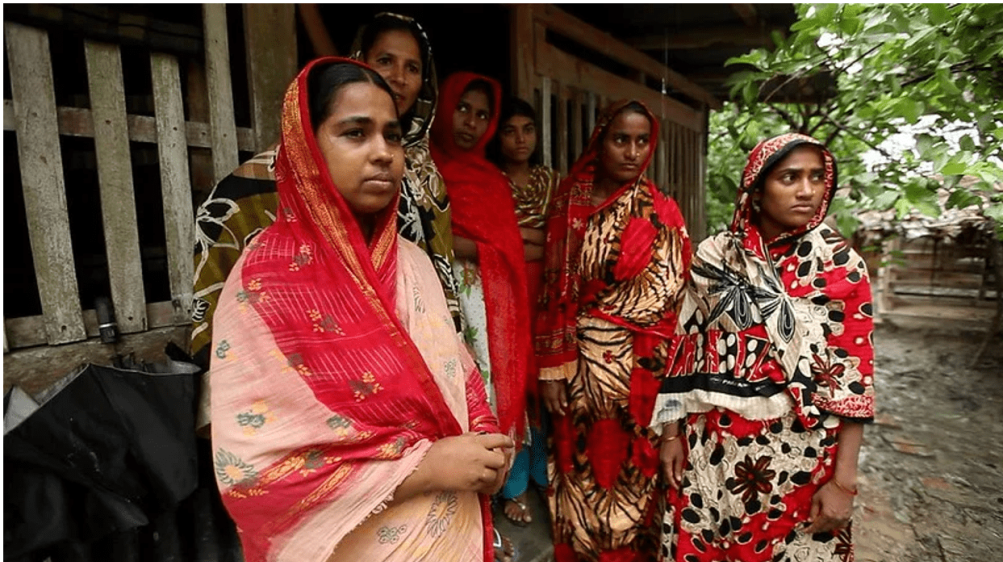- info@glopri.com
- Mon - Sat 8:00 - 18:00. Sunday CLOSE

In Bangladesh, microfinance has been an effective instrument for supporting female entrepreneurs, especially throughout the transition to the post-Hasina regime. Conventional gender roles and socioeconomic inequality have made it extremely difficult for women in Bangladesh to obtain financial resources. Women have benefited greatly from microcredit provided by microfinance institutions (MFIs) which has allowed them to launch enterprises and raise their economic standing. According to the latest research, by questioning prevalent gender conventions, microfinance program participation increases women's autonomy economically and promotes social empowerment.
Muhammad Yunus started a program of action research in the last years of the 1970s that served as the foundation for the microfinance system. Since the founding of Grameen Bank in 1983, which established the concept of giving small, secured loans to the impoverished, especially women, the field of microfinance in Bangladesh has undergone substantial change. In 2009, Sheikh Hasina's administration made great progress in advancing microfinance as a tool for gender equality and economic growth. More women participated in entrepreneurship due to policies that improved their access to financial services.
However, the shift to a post-Hasina administration, microfinance offers new challenges and chances for women's empowerment The effectiveness of these initiatives in fostering prosperity and supporting female entrepreneurs will be significantly impacted by the prevailing government's position.
A range of financial services designed to satisfy the requirements of individuals with low incomes without access to standard banking institutions are included in microfinance. Important services include:
These systems are essential for removing obstacles that prevent women from obtaining capital. According to research, millions of women have been effectively reached by microfinance institutions (MFIs), which have given them the money they need to start their businesses and raise their economic standing.
Women who are empowered by microfinance make substantial economic contributions:
Here, one of the numerous successful facts was discussed. A 20,000 Taka loan from a microfinance organization changed the life of Rina, a 35-year-old mother from Barisal, Bangladesh. She began a small-scale farming operation with this assistance and business management training, which increased her household income by more than 150%. In addition to raising her family's level of living, her achievement gave two other local women jobs. By rejecting gender stereotypes and encouraging local women to start their businesses, Rina became an inspiration to others and demonstrated the significant influence microfinance had on community development and women's empowerment.
Microfinance has a significant impact on social empowerment in addition to economic aspects:
Microfinance faces several issues that compromise its effectiveness. In rural areas, there is limited access to microfinance, and those who have access don’t have enough knowledge to manage the loan and generate profit. Several microfinance institutions have high interest rates which discourage people from taking loans and if they take repeatedly loans they do not become financially independent and use their money for non-productive purposes. As we know Bangladesh is a developing country so natural disasters limit the effectiveness of microfinance and cultural barriers where patriarchal norms also limit women's participation in microfinance initiatives.
In the microfinance sector innovation has had a great impact. They provide financial services to women to access accounts online. bKash, a mobile banking service that has significantly increased utilization of banking services for many thousands of Bangladeshi women, is among the most prominent instances of an excellent tech-driven program. Digitization can help MFIs serve customers more effectively by streamlining the distribution of loans and collection procedures, which may result in lower rates of interest for consumers.
To increase the influence of financing on the empowerment of women, several policy suggestions can be made.
Financial assistance must be integrated with more comprehensive social programs that tackle gender stereotypes and offer comprehensive support if microfinancing is to have the greatest possible impact on women's empowerment. Most women don’t know how to access these services online so firstly they should be trained to become self-reliant and also with time introduced to new business skills so they don’t repeatedly take loans which help them to grow their businesses that will help the nation's economy. Collaboration among NGOs and the State can bring new opportunities to microfinance that enhance its ability. Also, monitor the cultural barriers that discourage women's empowerment.
Microfinance plays a crucial role in women's empowerment in Bangladesh. They take the initiative and make it possible for women to become financially independent and break the traditional barriers. With the help of microfinance, many women have successfully changed their lives through entrepreneurship. Microfinance provides small loans and training on how to access services online. Digitalization makes it easier for women to become independent and also the role of NGOs and the State are notable. Microfinance also helps Bangladesh to improve its economy by empowering women.